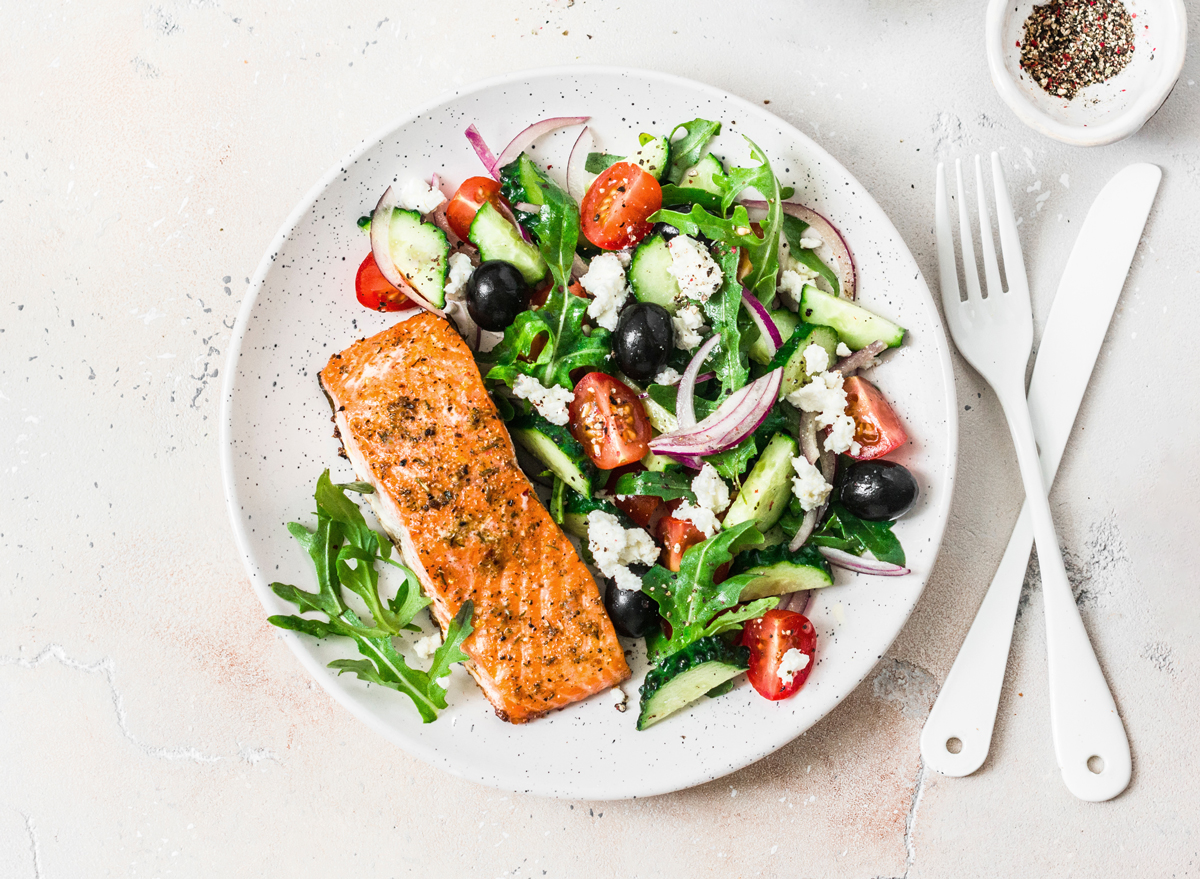The #1 Best Diet to Reduce Inflammation, Says Dietitian

Inflammation is one of those vague terms that we all are trying to improve. But what is inflammation, really?
The inflammatory process occurs naturally as a response to a perceived invader. This perceived threat could be something serious like surgery or an injury or smaller scale like alcohol or environmental toxins.
Short periods of inflammation are to be expected and totally normal. For example, if you get a cut, the inflammatory process works diligently to prevent infection and heal the wound. Before long, the body has healed itself.
Yet, there is a more ominous type of inflammation that is pervasive in the Western culture: chronic inflammation. Chronic inflammation is caused by lifestyle factors: what we eat, how we move, and how stressed out we feel over the course of our lifetime.
While acute inflammation can clear up relatively quickly, chronic inflammation is ongoing. It may be months or years before you notice the detrimental effect it has on your health.
RELATED: Get even more healthy tips straight to your inbox by signing up for our newsletter!
Avoiding short-term or acute levels of inflammation altogether may be a fruitless effort as there are so many! Rather, focusing on reducing chronic inflammation and improving the anti-inflammatory processes in the body will grant you a much greater return on your investment.
We can reduce inflammation through a healthy lifestyle: diet, exercise, and stress management play a critical role in alleviating inflammation. Reducing inflammation has been associated with decreased risk for heart disease, improved memory function, and better digestion.
Namely, the Mediterranean diet is a powerful eating pattern that promotes anti-inflammatory processes in the body.

The Mediterranean diet has several pillars that are thought to contribute to its anti-inflammatory properties.
- Monounsaturated fats: The Mediterranean region is infamous for its production of olive oil, nuts, and avocados. These heart-healthy, superfood sources of monounsaturated fats are potent inflammation-lowering fatty acids. Check out these other surprising side effects of olive oil.
- Vitamins, minerals, and phytochemicals: The Mediterranean eating pattern is a concentrated source of fruits and veggies. In fact, this eating style is dominated by the added colors to their plate. Increasing fruits and vegetables add phytochemicals to our diet. Phytochemicals help fight inflammation by neutralizing harmful cells in the body.
- Low sodium: Unlike the Western world, the Mediterranean diet prioritizes the natural flavor of food by using sodium sparingly when cooking. Over-salting has been linked to a weakened immune system and a pro-inflammatory response.
It's helpful to think of the Mediterranean diet as a lifestyle rather than a diet. Of course, the diet is incredibly healthy due to its natural anti-inflammatory nature. However, their holistic lifestyle is instrumental in decreasing inflammation.
People who live in the Mediterranean region are naturally active throughout their day, prioritize stress management, and eat their main meals as a family. These lifestyle factors alone have been closely linked to better health and wellbeing!
Inflammation isn't the only thing the Mediterranean diet impacts. Here's What Happens to Your Body On the Mediterranean Diet.








